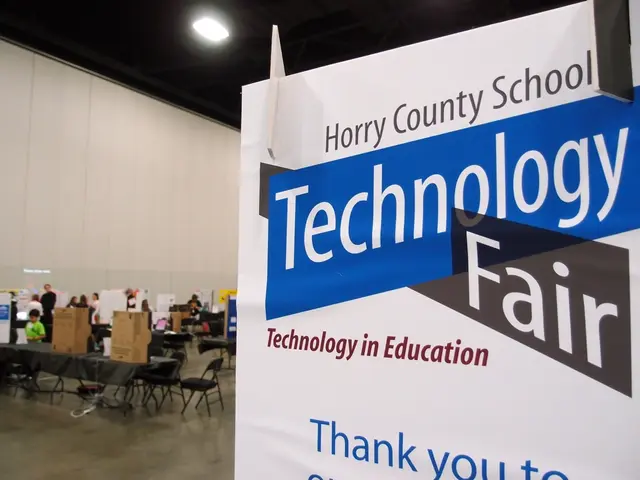Sustainability's Primary Focus Areas: Environment Protection, Economic Growth, and Social Equality
In a significant stride towards climate resilience, Shri Bhupender Yadav, Minister for Environment, Forest and Climate Change, launched the CII Report on Building Climate Resilience for Indian Industry at the 19th Sustainability Summit in New Delhi on 17 September 2024.
The report, which includes a Physical Climate Risk Assessment Framework (PCRAF), was developed by the Confederation of Indian Industry (CII) to assess and quantify climate risks for Indian businesses and their value chains. The framework aims to help industries identify risks from extreme weather events and provides guidance on adapting across sectors and regions.
During the special plenary session, Shri Yadav emphasised the importance of integrating health and essential services into resilience and recovery planning, and enhancing social resilience to ensure communities can effectively respond to and recover from climate-related events.
In his address, Shri Yadav highlighted India's achievements in meeting its climate goals. He stated that India has achieved 2 out of 3 quantitative NDC (Nationally Determined Contributions) targets of the Paris Agreement nine years ahead of schedule.
The Minister called for a transition from mindless utilization to mindful consumption and stressed the need to shift the debate from emission management to evaluating the cost of per capita emissions.
The report also recommends strengthening extreme-weather forecasting capabilities, regularly reviewing and updating building codes and regulations, and establishing standards for extreme weather resilience. It further suggests further incentivizing the use of this framework (PCRAF) to enable Indian industries to play a key role in climate resilience.
The report aligns with the Government's initiative, LiFE (Lifestyle for Environment), which focuses on themes such as saving food, water, and energy, managing e-waste, adopting healthy lifestyles, and enforcing a complete ban on single-use plastics (SuP).
Mr. Sanjiv Puri, President of CII and Chairman & Managing Director of ITC Limited, called for the development of a sophisticated AI-based risk assessment tool to forecast extreme weather events and other climate-related risks.
The 19th Sustainability Summit: Driving Change for a Sustainability Conscious World, since its inception in 2006, has served as a platform for deliberations on global regulations, policy reforms, and exemplary sustainability practices. The summit focuses on tangible actions for driving sustainable change across industries and societies.
Mr. Chandrajit Banerjee, Director General of CII, acknowledged that India has become a significant player in sustainability, attributing this to the Government's innovative and path-breaking initiatives. He emphasised that sustainability is a social goal, encompassing the three key concerns of environment, economy, and equity.
The author of the report "Building Climate Resilience for Indian Industry," presented at the 19th Sustainability Summit of the Confederation of Indian Industry on September 17, 2024, in New Delhi, is not specified in the available information. However, the report's launch marks a significant step towards building a resilient India.
The tool, if implemented as a public utility, could help the general population understand risks in specific geographies, fostering a more informed and proactive approach to climate resilience. The report underscores the need for such tools and initiatives to ensure a sustainable and resilient future for India.
Read also:
- Catastrophe at a U.S. Steel facility in Pennsylvania results in the loss of two lives. crucial details unveiled
- Auto Industry Updates: Geotab, C2A, Deloitte, NOVOSENSE, Soracom, and Panasonic in Focus
- Battle for Corporate Liability in Addressing Climate Damages
- North Carolina's food bank receives a solar energy upgrade as Republican legislators contemplate budget reductions








